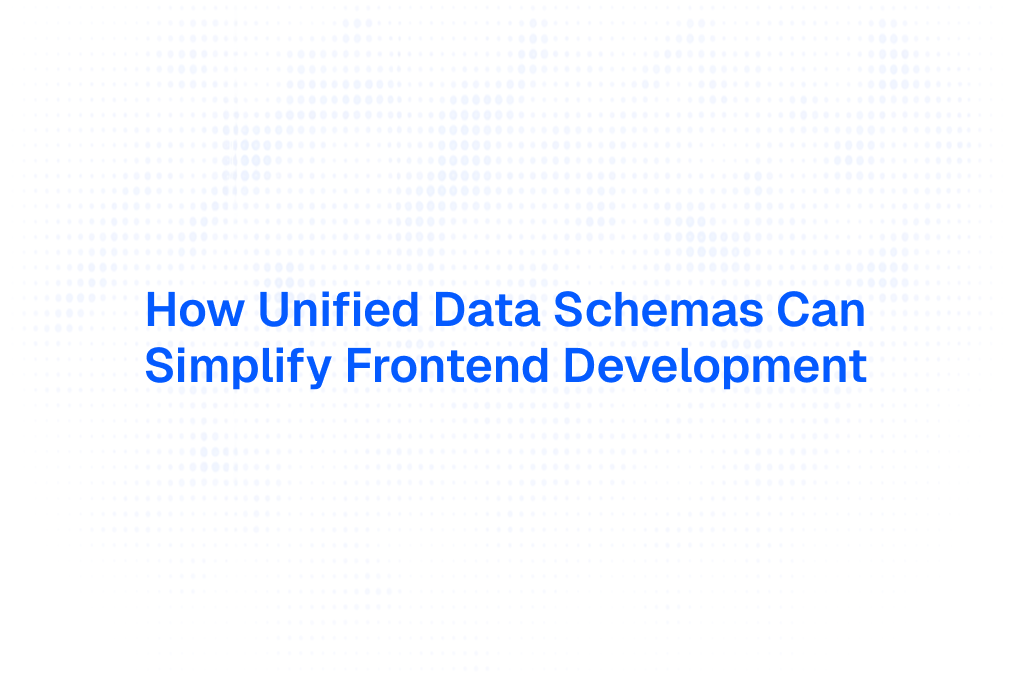Integrating AI Agents with Web3 APIs Using Uniblock
As blockchain technology continues to evolve, the integration of AI agents with Web3 APIs has become a critical frontier for developers and enterprises alike. Combining the decentralized power of blockchain with the intelligent automation capabilities of AI can unlock unprecedented efficiencies and innovations. However, achieving seamless interaction between AI agents and blockchain networks requires robust, reliable, and scalable API infrastructure. This is where Uniblock, a leading RPC auto-routing and multi-provider solution, plays a pivotal role.
Understanding the Intersection of AI Agents and Web3 APIs
AI agents are autonomous software entities capable of performing tasks such as data analysis, decision-making, and interaction with external systems. In the context of Web3, these agents often need to communicate with blockchain nodes via APIs to read blockchain data, execute smart contracts, or monitor transactions.
Web3 APIs, specifically Remote Procedure Call (RPC) endpoints, serve as the communication bridge between decentralized applications (dApps) and blockchain networks. For AI agents, accessing these APIs reliably and efficiently is essential to maintain real-time responsiveness and accuracy.
However, blockchain networks can experience RPC downtime, latency issues, or provider-specific outages, which can severely impact AI agent performance. Ensuring consistent availability and low latency in API calls is thus a fundamental challenge in this integration.
Why Reliable RPC Infrastructure Matters for AI and Web3 Integration
RPC downtime or outages can disrupt AI agents’ ability to interact with the blockchain, leading to missed transactions, delayed data processing, or incorrect decision-making. According to recent analyses, even brief RPC outages can result in significant operational costs and degraded user experience for Web3 applications.
Traditional single-provider RPC setups are vulnerable to these risks due to their lack of redundancy and failover capabilities. For AI agents that depend on continuous blockchain data streams, this single point of failure is unacceptable.
Uniblock addresses these challenges through advanced RPC auto-routing, failover, and load balancing mechanisms. By intelligently routing API requests across multiple RPC providers, Uniblock ensures high availability, reduces latency, and optimizes costs—key factors for AI-driven Web3 applications.
RPC Auto-Routing: Enhancing Reliability and Performance
RPC auto-routing involves dynamically directing API requests to the most optimal RPC provider based on factors such as response time, provider health, and geographic location. This approach minimizes latency and maximizes uptime, which is crucial for AI agents requiring real-time blockchain interaction.
For example, an AI agent monitoring Ethereum smart contracts can benefit from Uniblock’s multi-provider routing by automatically switching to a healthier or faster RPC endpoint if the primary provider experiences downtime or latency spikes. This seamless failover mechanism prevents disruptions and maintains the agent’s operational continuity.
Multi-Provider RPC Routing: The Future of Web3 API Infrastructure
Using multiple RPC providers simultaneously, rather than relying on a single source, is becoming the industry standard for Web3 infrastructure. This multi-provider strategy not only enhances reliability but also offers cost optimization opportunities by balancing requests across providers with varying pricing models.
Uniblock’s blockchain RPC aggregator platform enables developers to integrate multiple RPC endpoints into a unified API layer. This simplifies the development process for AI agents, as they no longer need to manage complex provider configurations or handle failover logic themselves.
Leveraging Uniblock for Seamless AI and Web3 API Integration
Uniblock’s platform offers a comprehensive suite of features tailored to the demands of AI agents working with Web3 APIs. Below are key aspects that make Uniblock an ideal choice for such integrations:
1. Simplified Multi-Cloud and Multi-Region RPC Routing
Uniblock supports multi-cloud proxy (MCP) integration, enabling AI agents to access blockchain networks through geographically distributed and cloud-agnostic RPC endpoints. This reduces latency by routing requests to the nearest or fastest node and enhances redundancy by avoiding cloud provider-specific outages.
For AI agents that require global scalability, such as those analyzing cross-chain data or managing decentralized finance (DeFi) portfolios, multi-region RPC routing ensures consistent performance regardless of the agent’s location.
2. Cost-Efficient API Call Management
Blockchain API calls can quickly become expensive, especially at scale. Uniblock’s auto-routing intelligently distributes requests to optimize cost without sacrificing performance. This is particularly beneficial for startups and projects with budget constraints aiming to scale AI-driven blockchain applications.
By reducing RPC costs by up to 40%, Uniblock empowers developers to allocate resources more effectively, focusing on innovation rather than infrastructure overhead.
3. Robust Failover and Load Balancing
Uniblock distinguishes between RPC failover and load balancing to provide a resilient API infrastructure. Failover ensures uninterrupted service by switching to backup providers during outages, while load balancing distributes traffic evenly to prevent bottlenecks.
For AI agents that execute time-sensitive operations—such as automated trading bots or real-time compliance monitors—this dual approach guarantees both reliability and scalability.
Practical Steps for Integrating AI Agents with Web3 APIs Using Uniblock
Developers looking to integrate AI agents with Web3 APIs via Uniblock can follow these practical guidelines to maximize efficiency and reliability:
Step 1: Set Up Multi-Provider RPC Endpoints
Begin by configuring multiple RPC providers within the Uniblock platform. This setup allows the AI agent to access a unified endpoint that intelligently routes requests across providers based on health and performance metrics.
Step 2: Enable Auto-Routing and Failover Features
Activate Uniblock’s auto-routing capabilities to ensure the AI agent’s API calls are dynamically directed to the best available RPC provider. Configure failover settings to automatically handle provider outages without manual intervention.
Step 3: Optimize for Latency and Cost
Leverage Uniblock’s analytics and routing controls to balance API call distribution, minimizing latency and reducing costs. For AI agents requiring ultra-low latency, prioritize providers in closer geographic proximity or with superior response times.
Step 4: Monitor and Scale API Usage
Utilize Uniblock’s monitoring tools to track API call volumes, latency, and error rates. This data helps in scaling AI agent operations efficiently and preemptively addressing potential bottlenecks or failures.
Future Trends: AI Agents and Web3 Infrastructure Evolution
The integration of AI agents with Web3 APIs is poised to become more sophisticated as blockchain infrastructure evolves. Emerging trends include:
- API Orchestration: Beyond aggregation, orchestration enables complex workflows where AI agents can interact with multiple APIs in a coordinated manner, enhancing automation and data synthesis.
- Multi-Cloud Blockchain Deployments: Leveraging platforms like Google MCP (Multi-Cloud Proxy) in conjunction with Uniblock will further improve resilience and scalability for AI-driven blockchain applications.
- Cross-Chain AI Agents: As interoperability protocols mature, AI agents will interact with multiple blockchains simultaneously, necessitating advanced RPC routing solutions like Uniblock’s multi-provider architecture.
Staying ahead in this dynamic landscape requires developers to adopt infrastructure solutions that prioritize reliability, scalability, and cost-effectiveness—qualities that Uniblock consistently delivers.
Conclusion
Integrating AI agents with Web3 APIs presents unique challenges that demand robust, flexible, and intelligent RPC infrastructure. Uniblock’s multi-provider RPC auto-routing platform offers a comprehensive solution to these challenges, ensuring high availability, reduced latency, and optimized costs.
By leveraging Uniblock, developers can empower AI agents to interact seamlessly with blockchain networks, enabling innovative applications that harness the full potential of AI and decentralized technology. As the Web3 ecosystem continues to grow, adopting advanced RPC routing strategies will be essential for building resilient and scalable AI-driven blockchain solutions.
Ready to elevate your AI and blockchain integration? Join the ranks of over 2,000 developers across 100+ chains who are already harnessing the power of Uniblock for seamless, scalable, and cost-effective Web3 infrastructure orchestration. Say goodbye to the complexity of managing decentralized infrastructure and unlock the full potential of your dApps, tooling, or analytics projects. Start building with Uniblock today and scale with confidence, knowing that the most robust RPC routing solution is at the core of your application.
.svg)

.png)




